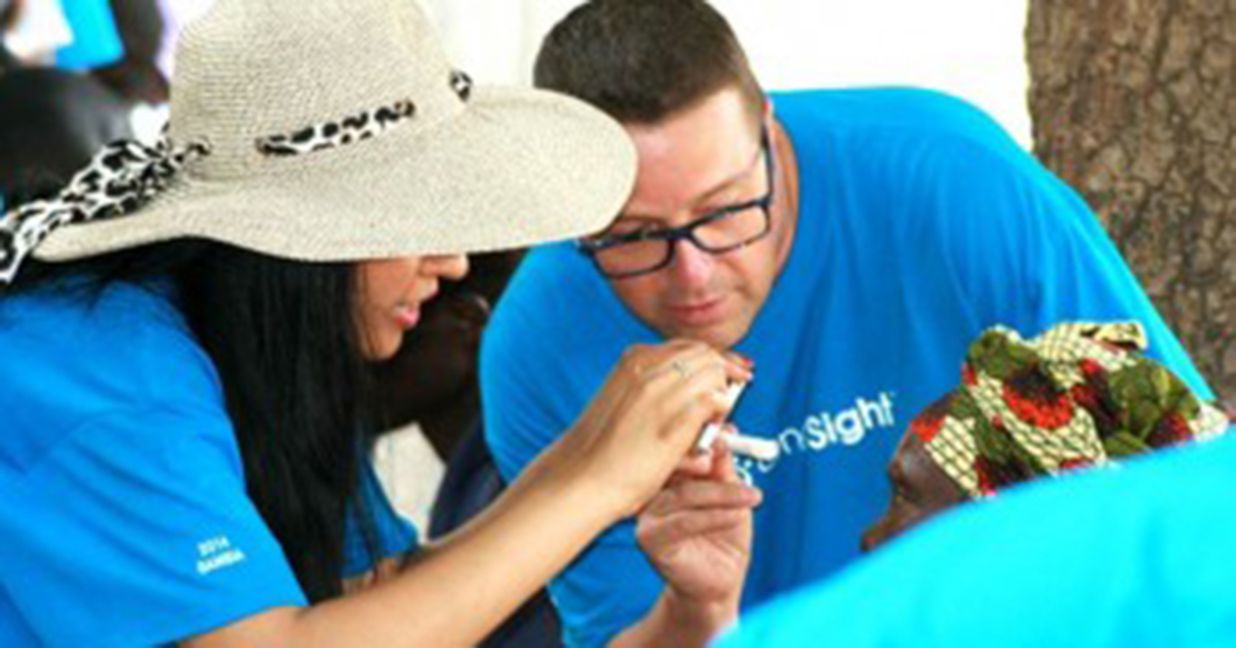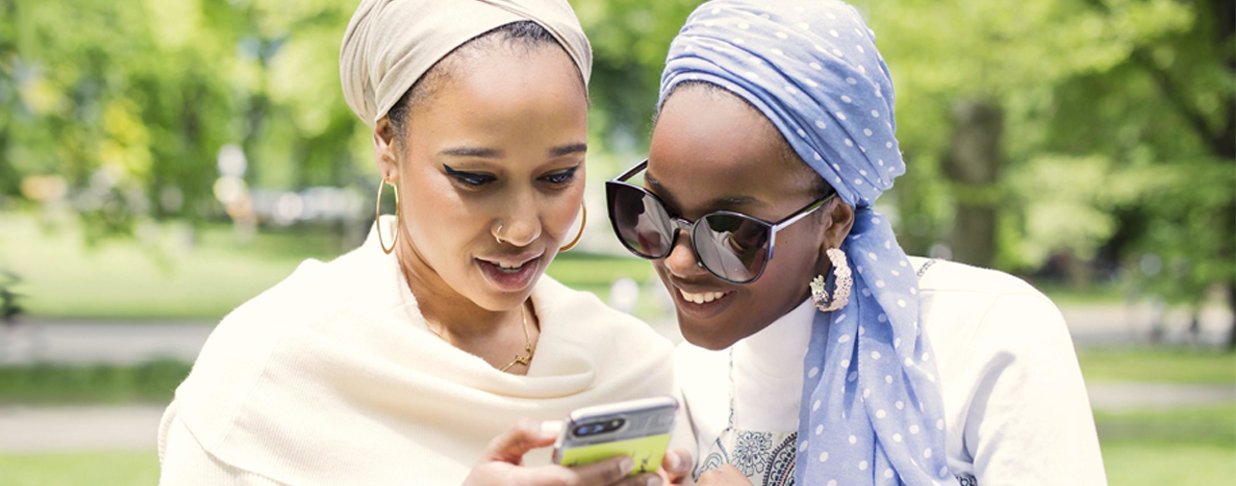In conjunction with World Health Day on April 7, we’re featuring stories about EyeMed employees and their volunteerism on OneSight sustainable vision care clinics around the world. An independent non-profit committed to providing affordable vision care around the world, OneSight has helped nearly 10 million people in 46 countries [1], and counting.
It’s a perfect time to tell their stories of sustainable vision care efforts, as the World Health Organization (WHO) observes the 70th anniversary of World Health Day — created to raise awareness of, and support for, sustainable access to quality health care services for everyone, everywhere — without financial hardship.
Scott Ditto’s story – Building sustainable solutions in The Gambia and Rwanda
When OneSight determined the people of The Gambia needed accessible vision centers, the nonprofit group called on me to share my professional expertise. As Director of Learning and Development for EyeMed and Luxottica North America, they felt I was a perfect volunteer to help oversee the training materials and implementation for OneSight’s Gambia project.
On the day I landed in The Gambia for the first time in 2013, it was 120 degrees Fahrenheit. Most of the country did not have electricity for the 2 blistering weeks I was there. No electricity meant no pumped water. But this did not deter our mission to develop sustainable vision care in The Gambia.
There was 1 vision center in a country of 2 million people, and that center was in the extreme western part of the country. Getting there, for many, required several days of travel, plus time for the exam and ordering the glasses, which could be prohibitively expensive.
Along these lines, OneSight’s mission is to create a world where a lack of vision care is no longer a barrier to achievement and possibility. OneSight does this in part by working with the healthcare systems of different countries to identify vision needs and solutions. In The Gambia, for example, OneSight and EyeMed volunteers opened 2 vision centers and an eyeglass manufacturing facility, all now operated by people from the community.
They are among 56 sustainable vision centers OneSight has opened to date around the world in undeveloped areas like Rwanda, Zambia, China and The Gambia. In each, community members are trained by OneSight volunteers to run the vision centers and eyewear manufacturing labs so they can make and sell affordable eyeglasses for generations to come. The trained team of Gambians, for example, is now helping bring permanent access to other African nations like Rwanda. This is what sustainable vision care can look like.
I absorbed a few key realities during my time in The Gambia.
1. The heat did not deter anyone from doing what was necessary to provide accessible and affordable vision care to their neighbors.
2. For the people of The Gambia, a good pair of eyeglasses was a luxury enjoyed by less than 20% of those who needed them.
It worked like this: Each village elder appointed an optical lead to be trained by OneSight employees, who I worked with closely.The training took 2 weeks; 1 in the classroom and 1 in the field, back in their villages where optical leaders performed screenings and gained the skills to be vision experts. The optical leaders then trained others in the community to perform vision screenings with patients.
In every new village, we found people had been lined up since early morning to have a vision screening. They’re such positive, warm, caring, happy people.
When our screeners identified someone who needed assistance, they referred the patient to the nearest of 2 vision centers. Each operates within a hospital and includes a waiting area, at least 1 exam room and a store where patients can choose frames. Prices are based on factors such as income levels and cost of materials to keep the program running. OneSight donates all the equipment.
I’ve now been to The Gambia 3 times and to Rwanda twice. While we taught others, the OneSight team was learning too. For example, we found women were less likely to get vision screenings because they weren’t the breadwinners and they feared glasses would identify them as “damaged.” So with OneSight, we launched a marketing campaign to help change that.
Thanks to the OneSight vision centers, and many volunteers, vision care that was once beyond reach for 80% of The Gambian people is now attainable and sustainable. For less than $10 (U.S.) someone can get a pair of glasses with a case — previously it would have cost 5 times that or more.
In a country where the average wage is $1 or $2 a day, that difference equates to more productive workers and households, better educations and a brighter future.
In The Gambia, I learned so much, including the importance of connecting with the locals and understanding their values before launching into a project. You have keep your perspective in check. Your standard of living may be different, but it isn’t necessarily better. My parting word to other volunteers is to observe the joy they experience in their own world and revel in it.
The WHO is calling on world leaders to live up to the pledges they made in 2015 when they agreed to the Sustainable Development Goals. They are asking for commitments to concrete steps to advance #HealthForAll, which means ensuring that everyone, everywhere can access essential quality health services without facing financial hardship.
Visit onesight.org to see how you or your company can get involved, or for more background, you can review OneSight’s sustainable program and approach.
BL-1804-CB-438
[1] https://onesight.org/about-us/



